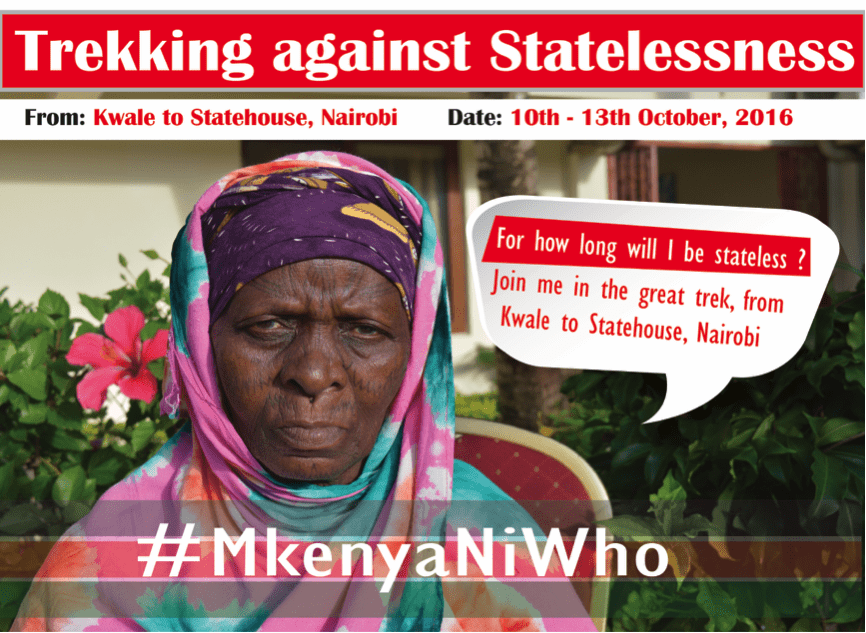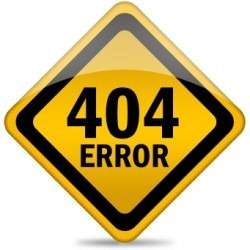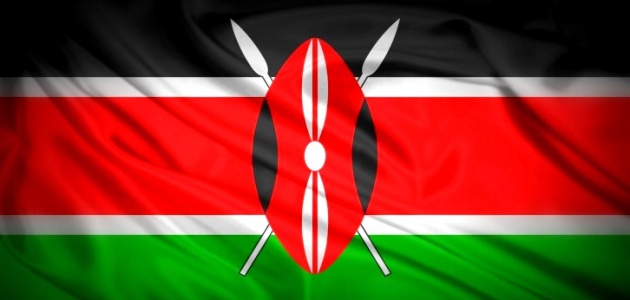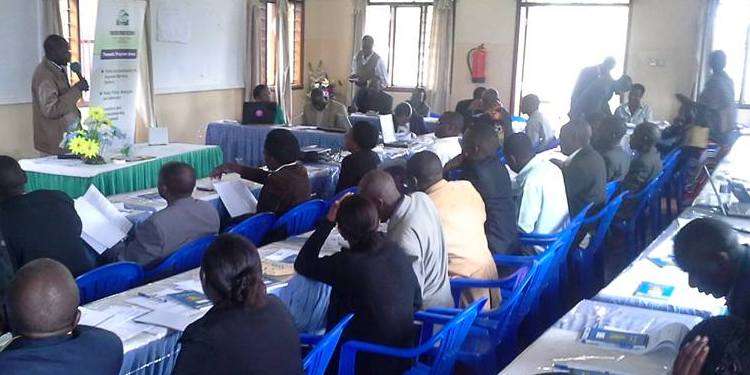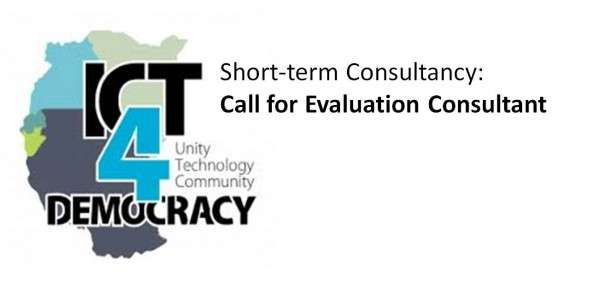Tweet
By Ashnah Kalemera |
Human rights violations incidents are on the rise in Kenya with extrajudicial killings and police brutality among the cases reported recently. Social media has enabled quick reporting of such cases while also creating increased awareness of the reported incidents. Through a mix of Twitter, radio and physical engagements, the Kenya Human Rights Commission (KHRC) is improving its effectiveness in promoting human rights and documenting violations in the lead up to the 2017 national elections.
The commission is seeing success in mobilising citizens for protests and marches, as well as getting stakeholders to participate in debates related to human rights. Through quarterly Twitter chats, the KHRC is popularising various human rights issues and bringing to the fore struggles faced by communities that have little online presence and who have limited avenues for participating in community affairs.
A Twitter chat hosted in September 2016 to promote dialogue on governance and anti-corruption drew panelists from the Institute of Economic Affairs (IEA-Kenya), Transparency International Kenya, International Commission of Jurists (ICJ)-Kenya, Society for International Development and Kenya Association of Manufacture (KAM).
Another chat on insecurity (under the hashtag #InSecurityKE) hosted in July 2016 explored the causes of social insecurity, challenges faced in addressing it and proposals for over coming those challenges. Panelists included the Kenya National Commission
coming those challenges. Panelists included the Kenya National Commission
on Human Rights, Amnesty International Kenya, Independent Medico-Legal Unit (IMLU) and ICJ-Kenya.
In another drive, the KHRC on October 10-13, 2016 mobilised 300 members of the Makonde community who live along the south eastern coast of Kenya for a walk dubbed “Trek against Statelessness”, from Kwale county to the capital Nairobi. The walk was in protest against the exclusion of the community from attaining formal national recognition and identity documentation. Several members of the Makonde community have lived in Kenya for about half a century after many of them immigrated from Mozambique.
Upon arrival at the State House, President Uhuru Kenya gave audience to the community and promised that all of the members would be registered as citizens. The registration process kicked off on October 24 and ended on November 10, 2016.
In the weeks leading up to the walk, among the channels utilised by the commission to mobilise participants were online platforms, with the hashtag #MKenyaNiWho (“Who is a Kenyan”) used to raise awareness of the Makonde community’s plight. Furthermore, a radio talk show was hosted on Citizen Radio for the Kwale Human Rights Network to discuss issues of registration of the Makonde community as Kenya Citizens.
Earlier in July, citizenship and statelessness, identity and belonging were also discussed at the Samosa Festival in Kenya. Among the key areas of discussions were the difficulties faced by Kenyans of Somali descent when applying for national identity cards and birth certificates in the northern part of the country. The discussion attracted members of parliament and members of communities that are struggling with the issue of citizenship.
Meanwhile, to support its efforts at grassroots level, KHRC has built the capacity of 14 Human Rights Networks (Hurinets) in four regions – Mombasa, Nairobi, Kisumu and Nyeri – to engage on issues of electoral governance and devolution including through social media. The beneficiary Hurinets included Kwale, Mombasa, Kinangop, Taita Taveta, Kakamega, Siaya, Migori, Nairobi, Makueni, Wajir, Nakuru, Nyeri, Kiambu and Isiolo. A total of 103 members of the networks (57% male and 43% female) have benefitted from the training.
The increased capacity of the Hurinets in Kenya to promote discussions on human rights issues in remote and rural areas where the Hurinets are based is expected to contribute to more issues being brought to the attention of local and national government primarily through social media. In 2015, the Midrift Hurinet in Nakuru County started #UwajibikajiMashinani “AccountabilityInRuRalAreas” hashtag campaign to get more citizens to deliberate on issues of accountability in the county. The Kwale Hurinet started #OkoaKwaleInitiative and “SaveKwaleInitiative” hashtag campaigns that asked Kwale county government leaders not to allow petty, personal differences to influence community decisions.
KHRC is a member of the ICT4Democracy in East Africa Network whose work is supported by the Swedish International Development Cooperation Agency (Sida) and the Swedish Programme for ICT in Developing Regions (Spider). The network is coordinated by the Collaboration on International ICT Policy for East and Southern Africa (CIPESA).
See also ICT4Democracy in East Africa Annual Report 2015 and using technology to advance human rights in Kenya.
Ugandans Turn to Proxies, VPN in Face of Social Media Shutdown
| By CIPESA Writer
On the morning of the highly anticipated general elections in Uganda, citizens woke up to no access to social media platforms Facebook, Twitter and Whatsapp. The popular mobile phone-based financial transaction service commonly known as Mobile Money was also offline.
Tech-savvy Ugandans keen to keep information on the electioneering process flowing turned to sharing information on proxies and apps that enable circumventing the blockage through Virtual Private Networks (VPN).
Within hours, as more and more citizens got back online, there was a spike in social media activity. By 1pm local time, the hashtag #UgandaDecides recorded 35,000 tweets. Three hours later at 4pm, the number of tweets with this hashtag had jumped to 56,000. By 5pm, the hashtag boasted over 64,000 tweets. As at 7pm, the figure stood at over double that of 1pm and was still growing.
Incumbent President Yoweri Museveni, who has been in power since 1986, is standing in the current elections and faces perhaps the strongest electoral challenge ever to his three-decade rule. Ugandan citizens’ level of online civic engagement was sparked by the first ever televised presidential debates, the first of which was held in January and the second just last week. During both debates, #UgandaDecides alongside #UGDebate16 trended, raising some level of trust in the electioneering process.
But this trust seems to have been turned on its head today. Internet services in various areas of the country have been intermittent, leaving many unable to access information. Leading telecommunications service provider MTN issued a statement confirming that Uganda Communications Commission (UCC), the regulator, had “directed MTN to disable all social media and mobile money services due to a threat to public order and safety.” There has been no communication from any of the other service providers including Vodafone, which has championed disclosure of government requests for user information and surveillance support through its annual Transparency reports.
An official at the communications regulator confirmed to the local Daily Monitor newspaper that they directed ISPs to block access to social media sites over “national security” concerns related to the “sensitive” elections period.
As the day progressed, growing numbers of citizens were able to share updates on late arrivals of voting materials at various stations, reports of election malpractice, and provisional election results.
Previous election periods in Uganda have seen a crackdown on social media, voices critical of the ruling party, and independent media in the guise of promoting public order and unity as well as preventing the spread of false information. The 2011 elections were marked with filtering of short message services (SMS) which contained certain words.
Today’s blockage is for an indeterminate period.
See also State of Internet Freedom in Uganda reports 2014 and 2015.
Thanks to ICT, government secrets get ever fewer
By John Walubengo |
ICT IN POLITICS
Reflecting on ICT for Democratic Engagement in Uganda’s Rwenzori Region
By Ashnah Kalemera |
In the Rwenzori sub-region of western Uganda, Information and Communication Technology (ICT) tools have been key tools in promoting public accountability and improved service delivery. Through an ICT “convergence approach” that combines SMS, radio and online polling, Toro Development Network (ToroDev) has for the past five years promoted information and knowledge sharing for citizens’ engagement with their leaders on priority service delivery needs and concerns in the region.
ToroDev’s project, which is part of the ICT4Democracy in East Africa Network, has empowered local citizens in offline and online advocacy and engagement with duty bearers, trained radio journalists in reporting and promoting debate on accountability issues, facilitated quarterly accountability meetings between citizens and leaders, and supported the initiation of 15 civic groups in the region. The civic groups, also known as rural advocacy forums, consist of 80 members each, and are involved in citizen journalism and community mobilisation for the radio debates and accountability meetings.
Over the years, the project has seen increased levels of citizen participation and engagement. In 2014, each monthly advocacy forum meeting was attended by at least 50 members. Outcomes from the monthly meetings are discussed on radio talk shows. Meanwhile, 60 leaders at sub-county and parliamentary level participated in the deliberations and jointly with citizens drew up action plans, among them, the State Minister for Finance.
In western Uganda’s Rwenzori region, citizens’ participation on radio talk shows on governance issues through SMS, call ins, and social media grew from 304 in June 2014 to 4,835 by Nov 2014. See ICT4Democracy in East Africa Annual Review 2014.
Citizens have also gone on to leverage social media to engage in discussions on governance and service delivery. See for instance State of Service Delivery in Rwenzori Region, Orukurato, Rwenzori Journalists Forum and Listeners’ Forum Facebook with active membership pages.
However, at a national level participation of citizen in public affairs remains low. During the 2011 presidential elections, only 59% of registered voters cast their ballot. According to the 2013 Uganda National Household Survey, only 7% of households have a member that participates in governance at the local level, down from 10% in 2010.
The 2013 survey estimates that household participation in local governance in Western Uganda stands at 8.1% and the region boasts the highest proportion of citizens registered as voters (89%).
In the run up to the 2016 national elections, ToroDev convened regional stakeholders at a conference to reflect on the role of ICT in the electioneering processes. Uganda will hold local, parliamentary, and presidential elections in February 2016.
Speaking at the conference, Dr. Paschal Kabura, the director of Uganda Martyrs University Fort Portal campus, urged local citizens to take interest in staying informed of regional concerns that directly affect their livelihoods. “Voter apathy must be overcome,” he said, while calling for more active citizen participation in local governance processes through the use of ICT.
Discussions at the conference also included mainstreaming gender in governance processes. Goretti Amuriat from the Women of Uganda Network (WOUGNET) highlighted the need for building women’s capacity to participate in advocacy and accountability engagements, and for promoting awareness of gender issues at community level. She also stressed the need to consider women’s special needs such as child care facilities at local government consultation meetings, and suitable timing and conducive locations of accountability forums for both women and men.
Amuriat urged workshop participants to fight “biased cultural attitudes” in the region such as only men being leaders, what a man says being “right and final” and women being undermined due to their domestic responsibilities. She said it was important for women to realise that such attitudes “are not biological but socially constructed.”
The conference provided a platform for feedback and knowledge sharing on the performance of existing rural advocacy forums and the potential for establishing forums consisting of local government officials and civil society organisations at district level.
“As a result of the work of advocacy forums we have seen water put in place for example in Mugusu and Katebwa sub-counties in Kabarole district, two class room blocks have been put in place in Bufunjo Seed school in Kyenjojo district, roads [have been] improved in Kichwamba, Rwebisengo and Ntoroko District,” said Tumwesigye Andrew, the leader of Bufunjo Forum in Kyenjojo District, during the panel discussion on the performance of advocacy forums. “We have improved staff in health centres in Bufunjo, improved accountability and improved participation of women in budgetary processes and meetings,” he added.
The conference, which was held on November 19, and 20, 2015 drew more than 80 stakeholders from the districts of Kabarole, Kyegegwa, Kyenjojo, Kasese, Kamwenge, Bundibugyo and Ntoroko. They included district planners, radio, print and TV journalists, civil society organisations, religious leaders, advocacy forum members, youth leaders, district information officers and other local government officials.
The ICT4Democracy in East Africa Network is a regional coalition of civil society organisations leveraging ICT to promote civic participation, human rights and democracy in Kenya, Uganda and Tanzania. Coordinated by the Collaboration on International ICT Policy for East and Southern Africa (CIPESA), it was established in 2011 with seed funding from the Swedish Programme for ICT in Developing Regions (Spider) and is currently supported by the Swedish International Development Cooperation Agency (Sida).
Call for Evaluation Consultant: ICT4Democracy in East Africa Network
The Collaboration on International ICT Policy in East and Southern Africa (CIPESA) is seeking an evaluation consultant to establish the achievements, outcome and challenges registered by the ICT4Democracy in East Africa Network during the period November 2013 – October 2015. The evaluation will assess the appropriateness, effectiveness and outcomes of the network in relation to the program objectives.
Closing date for applications: 17:00 hours East African Time (EAT) on Thursday November 19, 2015
Further details on the scope, eligibility and how to apply are available here.

